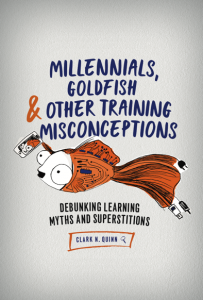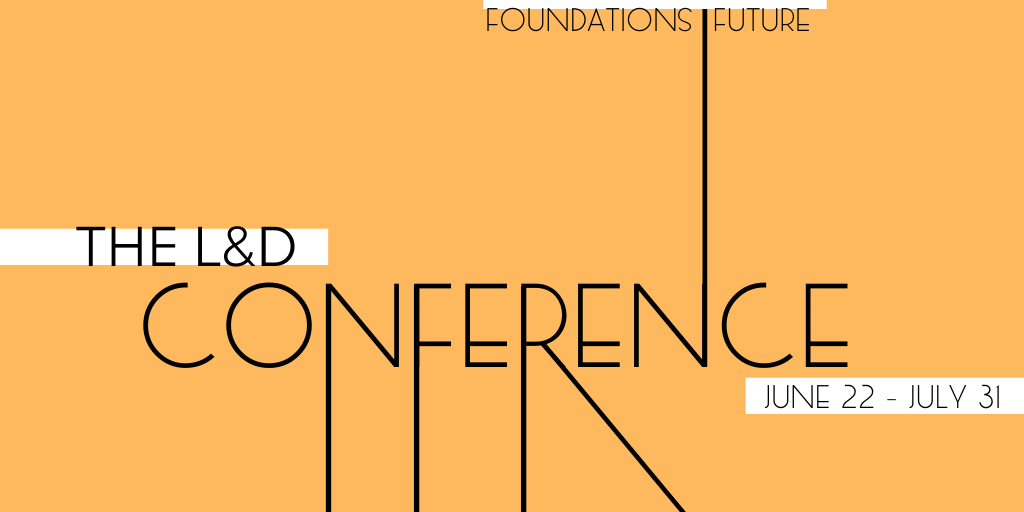 I found something interesting, and wanted to share, but…I realize this is supposed to be about my learnings about learning. So, I’m framing it as thinking about reframing ;). Seriously, it’s about extant models and opportunities to rethink.
I found something interesting, and wanted to share, but…I realize this is supposed to be about my learnings about learning. So, I’m framing it as thinking about reframing ;). Seriously, it’s about extant models and opportunities to rethink.
So, to begin with, I’ve been somewhat frustrated with the traditional model of capitalism. No, not as a plea for communism or something, but because it doesn’t align with our brains. When I champion that we should align with how we think, work, and learn, that’s true at the individual, team, organizational, and societal levels.
The problem is, capitalism assumes that we’re optimizing buyers. That is, we will search out and buy the best products, so there’ll be consistent pressure for quality, and this drives improvement. A lovely theory. With only one small flaw…
We’re not optimizing buyers. Herb Simon was part winner of a Nobel prize (kinda before he went on to be a leader in the cognitive science field) on the fact that we’re satisficing buyers, not optimizing. That is, we’ll buy ‘good enough’. I’ve used the fish shop story to document this. We know how to make light, crispy, non-greasy fish’n’chips. So, the capitalist model would posit that every shop should have beautiful fish. Er, no. You’re just as (more?) likely to find greasy sodden fish. Because we’re not likely to drive one borough/neighborhood/town over to get perfect when what’s close is ‘good enough’.
You can get backup from behavioral economics or the work of Daniel Kahneman about how we aren’t logical beings. The point being, we don’t behave in rational ways. For instance, we’re vulnerable to marketing that affects our perceptions. And economics is linked to politics about whether all the real costs are included. Thus, the fundamental foundation of capitalism is flawed.
As an aside, it’s also predicated on unlimited growth. That is, we’ll continually advance in our ability to meet needs. Yet we live on a finite planet…and yes, I know that there are also technological advances. It’s just that I reckon there are limits to growth.
A serious problem is that the alternatives are also flawed. Capitalism proposes that it passes back by the creator of the superior end product purchasing the components and that cascades backwards. However, to change it, e.g. to track based upon the value of a person’s contribution to the greater good, we’d need bookkeeping to track it.
What I hit a wall against was working within the assumptions. And yet, maybe there’s another way, that is thinking about reframing the problem. Just as I previously talked about replacing happiness with contentment, maybe we can rethink economics. If we think about it differently, can we come up with a different model.
Something pointed me to doughnut economics. And it’s not a full solution, but it does have some interesting properties. The reason it’s called the doughnut model is that there’s a hole in the center, then the body, and then the external limits. The hole consists of the basic capabilities humans need: clean water, reliable and healthy food, etc. This, to me, is kind of the ‘aligning with us’. Then the outside are the practical limits: finite planet, limits on water, energy, air, etc. Between these two are where humans can (and should) live.
It’s a different way of looking at things. I’m not an economist by any means (I find it aversive ;), but I do like looking at society in ways that might make it better. And this model, as far as I know, doesn’t have a clear path to replace our current economic system (e.g. prices on goods). But it’s way of rethinking what matters that’s somehow closer to how we really exist.
The take-home for learning, of course, is being willing to step back and reframe what we think we know. Different perspectives enable different insights. It’s part of the creative process to diverge before you converge. So here’s hoping we can find ways to be thinking about reframing. What ways do you use to think afresh?



